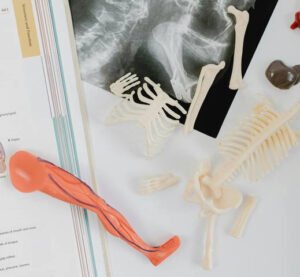The main benefit of testosterone is the process of male growth and development and provides male characteristics, such as hair growth on the face, testicles, and muscles.
Testosterone also plays an important role in the formation of sperm, so it greatly determines a man’s fertility. That is why many men only come to check their testosterone levels when it is related to fertility problems.
Testosterone does not only act as a male sex hormone! Many aspects of a man’s life are influenced by testosterone, including psychological aspects, such as mood, energy levels, and concentration.
Generally, in men, testosterone levels that are too high are not a problem. Low testosterone levels are associated with metabolic syndrome health problems, including high cholesterol, high blood pressure, obesity, and high blood sugar, thus increasing the risk of heart attack and stroke.
How to overcome low testosterone problems?
Dr. Christian Christoper Sunnu, Sp. An Andrology Specialist from Eka Hospital BSD explained several therapy options to overcome low testosterone problems, including:
1. Testosterone Replacement Therapy (TRT)
Testosterone replacement therapy is done using synthetic testosterone. Artificial testosterone hormone can be given in various ways, such as injection, gel or cream, skin patch, tablet, to pellets or medicine that is implanted under the skin, usually in the hip or buttocks area.
2. Hormonal drugs
In addition to synthetic testosterone, doctors can also prescribe hormone drugs, namely Clomiphene Citrate. This drug is more commonly used to treat fertility problems in women. However, several studies have shown that taking this drug in men can help increase testosterone and sperm count.
3. Supplements and vitamins
Some vitamins and minerals are known to increase testosterone levels in the body. Doctors will recommend several supplements to complement testosterone replacement therapy, such as vitamin D, Zinc, magnesium, Dehydroepiandrosterone/DHEA, and others.
4. Lifestyle changes
A healthy lifestyle can also affect testosterone levels. For example, exercise is known to help increase cholesterol levels.
Several lifestyle changes can be made to help increase testosterone levels naturally, namely regular exercise, 150 minutes a week, especially weight training, aka resistance training, eating healthy foods, especially low-fat protein and healthy fats, controlling stress, and getting enough sleep.
Testosterone hormone problems can cause various complications, both physical and mental health. If you experience various complaints above, try consulting a doctor for health.























+ There are no comments
Add yours